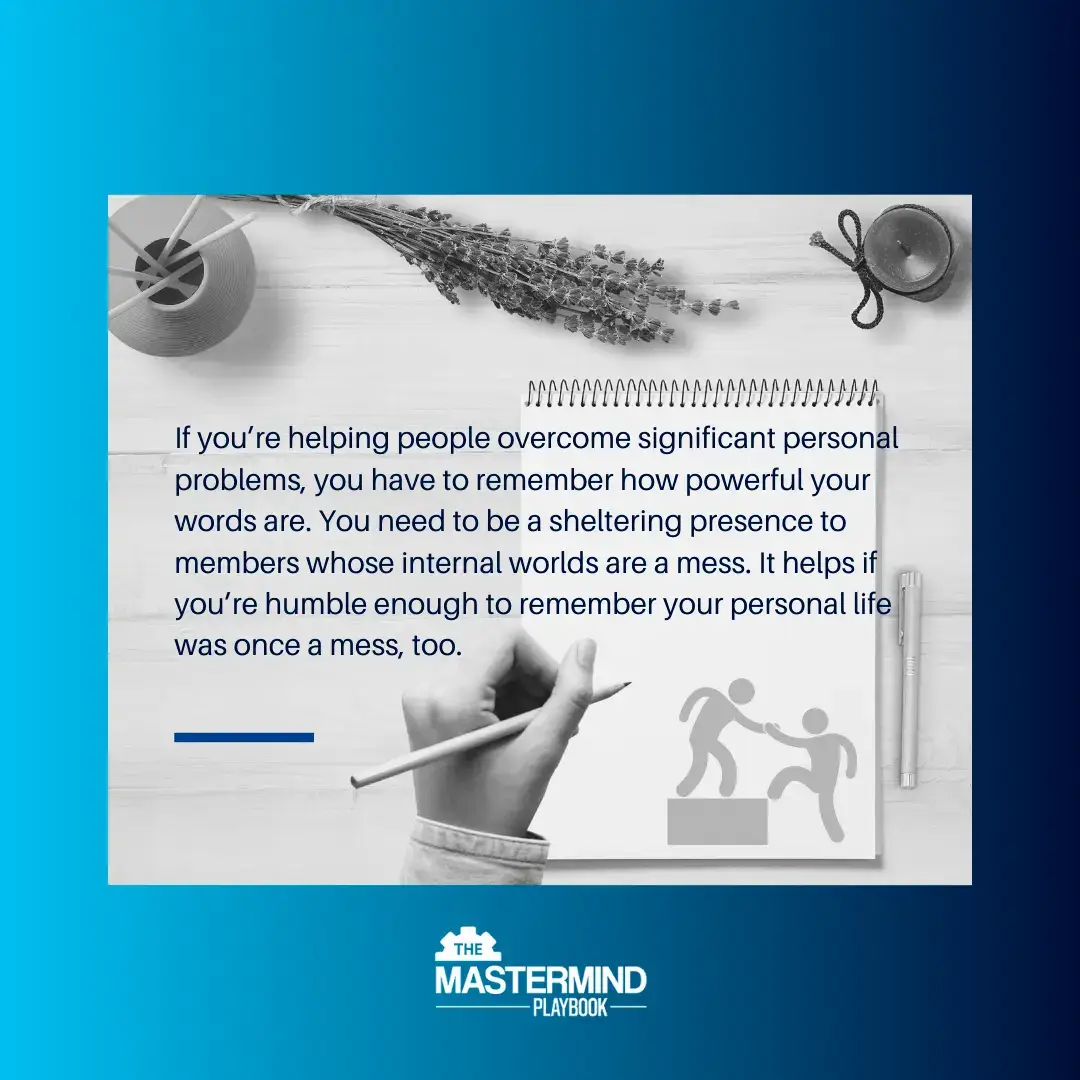3 min read
The Online Mastermind Group: A Personal and Professional Incubator
Aaron Walker : Aug 21, 2020 12:00:00 AM

Maybe you haven’t thought of this, but your mastermind groups online don’t need to produce winners right away. Sometimes, they’re more helpful to someone who’s deteriorating alone.
What I’ve found, in my years as a business coach, is you can’t always tell which one’s which. Some people seem like they just need a winning edge. You can have them done and dusted in 2-3 months. Usually, these people need much more professional than personal growth.
Others need much deeper work, but they look pretty good on the outside. In this case, the percentages usually reverse. People in this group need far more personal than professional growth. They’re good at making money, and terrible at most other things.
What It Takes to be President
We’re reading about four famous US presidents in our masterminds online this month. Two of them stood out, when it comes to retreating into the shadows to grow and mature. Abraham Lincoln and Theodore Roosevelt both went for “a walk in the wilderness,” after their early political careers crashed and burned.
Both men disappeared into obscurity. Lincoln retired from the Illinois legislature, and spent years on the road as an attorney. He devoted most of his thirties and early forties to reading, researching, trying cases in court … and most importantly, to participating in something like a business mastermind.
In Lincoln’s day, his responsibilities as a lawyer included traveling throughout the state with other lawyers, judges and bailiffs. They would go from town to town and hold court, to decide cases. It wasn’t like the modern justice system, where every town has legal authorities built-in.
But you can imagine, by doing this, he spent weeks and months in the company of fellow professionals. The men would argue cases in court as opponents during the day, and then gather afterward to debrief and discuss issues in taverns at night. Lincoln also rose earlier and stayed up later than his fellow lawyers, reading and studying everything he could.
Badlands
Theodore Roosevelt, meanwhile, disappeared from politics in 1884 after the death of his wife and his mother on the same day. He also took along a mastermind, a group of men he recruited to accompany him to his ranch in North Dakota.
It was during this “exile” that Roosevelt developed his legendary “Rough Rider” persona. Arriving a sickly young man, Roosevelt threw himself fully into the rugged life of a frontier cowboy, and returned a conquering warrior. He went on to serve heroically in the Spanish-American War, and shortly thereafter, as President of the United States.
The process these men went through still applies to most men today, and mastermind groups are an excellent way to facilitate it. You might draw parallels from Lincoln’s journey in the day-to-day actions and responsibilities of a mastermind member. Roosevelt’s story could be compared to annual or biannual live events like we do in Iron Sharpens Iron.
Speaking of daily actions and annual events, did you know we’ve created a business tool that helps you stay on top of all those things? If you’re leading groups like this, I want to invite you to check out The Mastermind Playbook.
Gimme Shelter
If you’re overseeing someone’s personal and professional transformation, I think the best thing you can give them is validation and reassurance. We’ve had people come into ISI in the past in very dysfunctional states.
One man I know was in a really bad way. He has such talent, but back then, he was living on skid row at minimum wage. He had a toxic relationship with the woman he was dating. He was not a man of faith. But something told me I should try my best, as the leader, to bring him into the fold and help him.
Today, that young man earns a six-figure income without leaving his home. He broke off his toxic relationship, and accepted Christ into his life. I don’t claim credit for this, but I do know that if I’d been critical or judgmental toward him, I don’t think he’d have joined the mastermind and changed his life.
So, if you’re helping people overcome significant personal problems, you have to remember how powerful your words are. You need to be a sheltering presence to members whose internal worlds are a mess. It helps if you’re humble enough to remember your personal life was once a mess, too.
Future Chief Executives
I don’t want to neglect the other category - people who need more professional than personal development. This tends to be “the sharper end of the stick,” because these people aren’t lacking in character, kindness or integrity. They just need more prodding toward the next right thing.
Here, I find myself concerned with getting members to spell out every detail, so nothing gets missed. The challenge they face is to think “performance-driven,” as my friend David Hancock says. The temptation is to get complacent, because you think, “Well, I’m a good person … because of that, things should work out.”
I wish that was all it took, but if you’ve ever coached corporate executives, you know how hard it is to be obsessed with details. If you look at how both Lincoln and Roosevelt reappeared in politics after their days in the wilderness, you’ll see it. They became devoted students of their craft, which is what made them so persuasive.
With people who need more professional development, your job as facilitator is to find ways to train them to be future chief executives.
And while you’re doing that, I want to invite you to take a look at The Mastermind Playbook, where you can automate, delegate and simplify your way to a mastermind that grows and scales.

